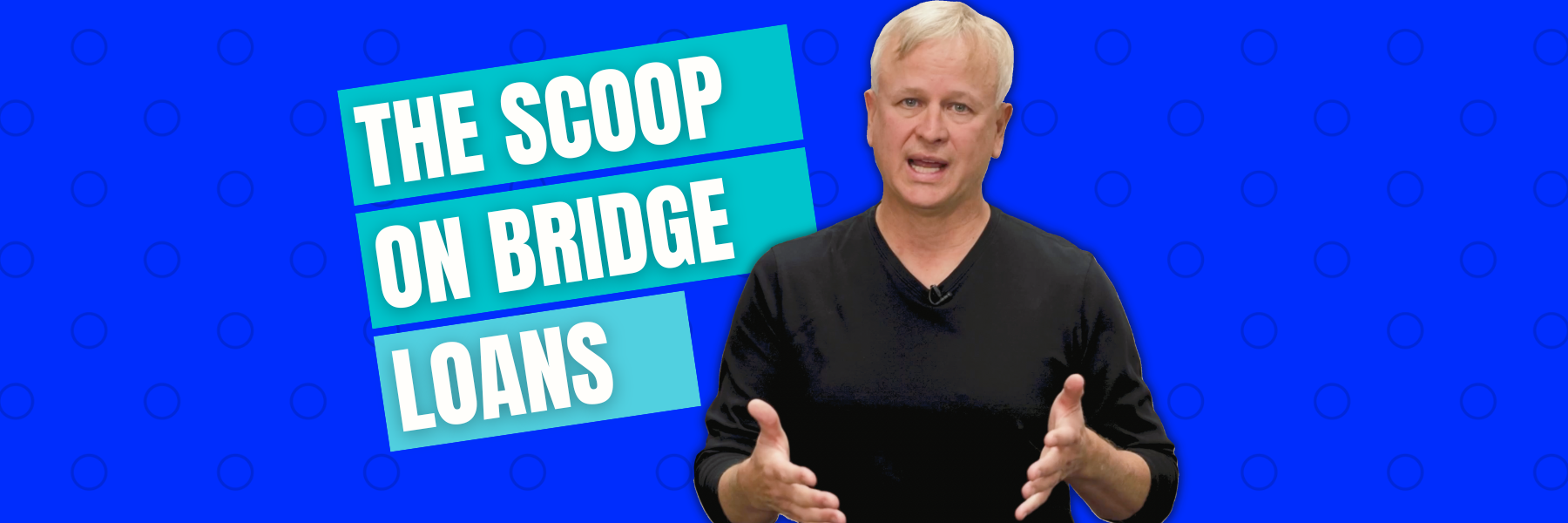Why Are Bridge Loans So Popular Right Now?
Categories: Blog Posts
Everything you need to know about bridge loans right now in the current market.
The demand for bridge loans is up in the real estate investment community. Yet the availability of loans is decreasing every day.
Why is this? Who is still lending? What are the current costs? And how do you find these lenders?
Let’s dive in.
Why the Real Estate Market Has Changed
Federal interest rates keep rising, tightening up money across the country for real estate investors.
The entire real estate market is feeling the squeeze of rates. Many fix-and-flips on the market now were purchased in a different market. Investors may have expected to get top-dollar for houses that now may take weeks or months to sell at all.
The Market Changes & Bridge Loans
What changes have already occurred, and what can we expect going forward for bridge loans?
In general, you can expect the following changes from real estate leverage lenders:
- Lower LTVs – The amount of money you can get from a lender will continue to go down.
- Cutting Appraisals – Lenders expect a 5% to 15% decrease in market prices, and appraisals will begin to reflect that.
- Shortened Terms – The length of bridge loans or some lenders will be cut in half.
- Credit Score – While a 620 credit score used to be the minimum, now lenders won’t consider applicants with less than a 680.
- Pricing – Six to eight months ago, you could get a bridge loan at a 7% to 8% interest rate. Presently, they’re around 10% or 11%.
Just as you might feel some uncertainty in these economic times, lenders feel it too. Lending institutions want to keep themselves safe. Unfortunately for real estate investors, that means tight money – including bridge loans.
Why Bridge Loans are Needed
These market conditions increase the demand for bridge loans. Homes may be staying on the market longer, but lenders still need their loans paid back on time, and you still need to move on to your next project.
Now is the time to set yourself up well financially. Due to tightened conditions now, the market 6 months from now will have a lot of great deals for investors. Bridge loans can help you get ready.
With a bridge loan, you can free up the capital you have in houses on the market. Plus, you can improve your relationship with lenders by paying off your flip loan.
You can put your flipped house into a short-term bridge loan for 2 to 3 years. In the meantime, you could rent out the property, or just use the loan to pay off the lender while waiting for a buyer.
Using bridge loans in this way keeps you from foreclosure or other negative effects on your credit.
Who Does Bridge Loans Right Now?
The following places are still lending:
- Small to mid-size banks
- Lenders that work with capital funds or hedge funds
- Small lenders, like The Cash Flow Company
- Some hard money lenders
The catch is they’ve all tightened their funds.
You can get a bridge loan from these places. You’ll just get lower LTVs, higher rates, and need a better credit score.
In this market, it’s important to reach out to any lender who can help you. Nothing will fall into your lap – you’ll have to actively search to find a loan product to fit your bridge needs.
You can also work with a place like The Cash Flow Company, who always searches for the best real estate loans available.
What Is the Cost of Bridge Loans Right Now?
There are 3 main types of bridge loan lenders: banks, capital funds/hedge funds, and local hard money lenders.
But the market has changed. Here’s a glimpse into what you can expect for the next few months:
Rates
Banks – Interest rates average around 6% to 6.5% for banks.
Capital Funds – Expect 10% to 12% interest rates for hedge fund bridge loans right now.
Hard Money – Hard money interest rates are about the same as cap funds, around 10% to 12%, but with a bit more flexibility.
Points
Banks – Banks have the cheapest money, at 1 to 1.5 points. Smaller banks tend to charge more in origination fees than national banks.
Capital Funds – Cap funds charge around 2 to 3 points.
Hard Money – You can expect 2 to 4 points on a hard money bridge loan transaction.
LTVs
Banks – Depending on your relationship with the bank, you can get up to 65% to 70% LTV on a bridge loan.
Capital Funds – You can get 65% LTV on a refinance or bridge loan with a hedge fund.
Hard Money – Hard money has the most LTV flexibility, like putting a cross-lien on other properties. Typical LTV range is 70% to 75%.
Terms of Bridge Loans
Banks – For bridge loans, banks have the most flexible, longest terms, from 1 to 3 years.
Capital Funds – For cap funds, 3-year bridge loans are now two. Two-year bridge loans are now one.
Hard Money – Bridge loans from hard money have the shortest terms – as short as 1 month, and typically no longer than 1 year.
Closing Times
Banks – Banks’ lead time for a bridge loan is typically 3 to 6 weeks. But lately, we’ve seen loans take up to a couple months in the current market.
Capital Funds – The standard closing time for cap funds is 2 to 3 weeks.
Hard Money – Hard money can close fastest – which is very important for a bridge loan. Depending on your relationship with the lender, the loan can take a week or less.
Location
Banks – Banks have a footprint they’ll lend within, which is typically very local.
Capital Funds – Hedge funds lend nationwide. They’re the best option for multi-state bridge loans.
Hard Money – Hard money lenders are flexible. But, they tend to lend locally, or in other areas they’re familiar with.
Valuation
Banks – Banks require an appraisal for all loans over $250,000. (And some loans under that amount).
Capital Funds – Hedge funds always require an appraisal.
Hard Money – There is no appraisal in the hard money loan process. That’s why they can close so much faster than everyone else.
Overview
Banks – Will be your cheapest but slowest options. They have high requirements.
Capital Funds – Middle of the road for cost and speed, but helpful if you need loans within multiple urban areas.
Hard Money – The most expensive option for bridge loans, but also the most flexible and the fastest.
How Do You Find Bridge Loan Lenders?
For bridge loans right now in these changing times, you need to be proactive.
Where to Search for Bridge Loan Lenders
Check with local real estate communities (REITs in your area, biggerpockets.com, etc). Once you get some lender names, call around. Overall, it may take some effort to find lenders.
Or you can offload the research onto us.
We search every day for the best bridge loans in the real estate world.
Email us with a question about a deal or a bridge loan need, and we’ll find a way to help: Info@TheCashFlowCompany.com.











